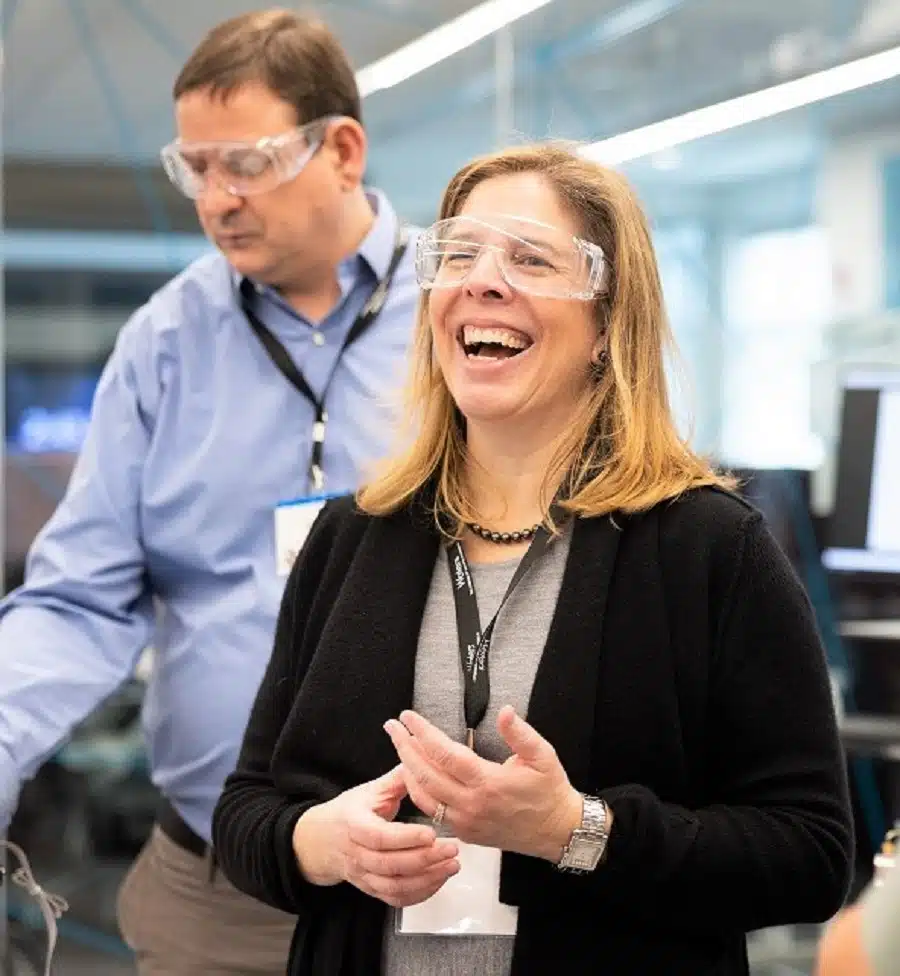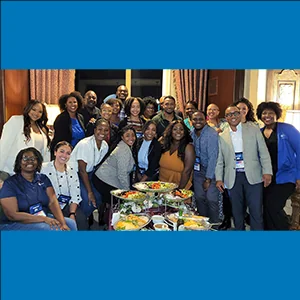Ming Gao, Ph.D. on Enabling COVID-19 Research and Empowering Women in STEM
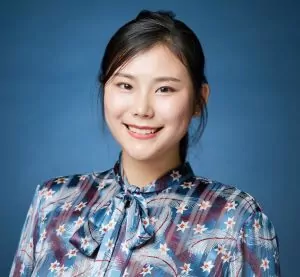
An interview with Ming Gao, Ph.D., Upward BioInformatics Ideation Post-Doctoral Fellow at Waters Corporation
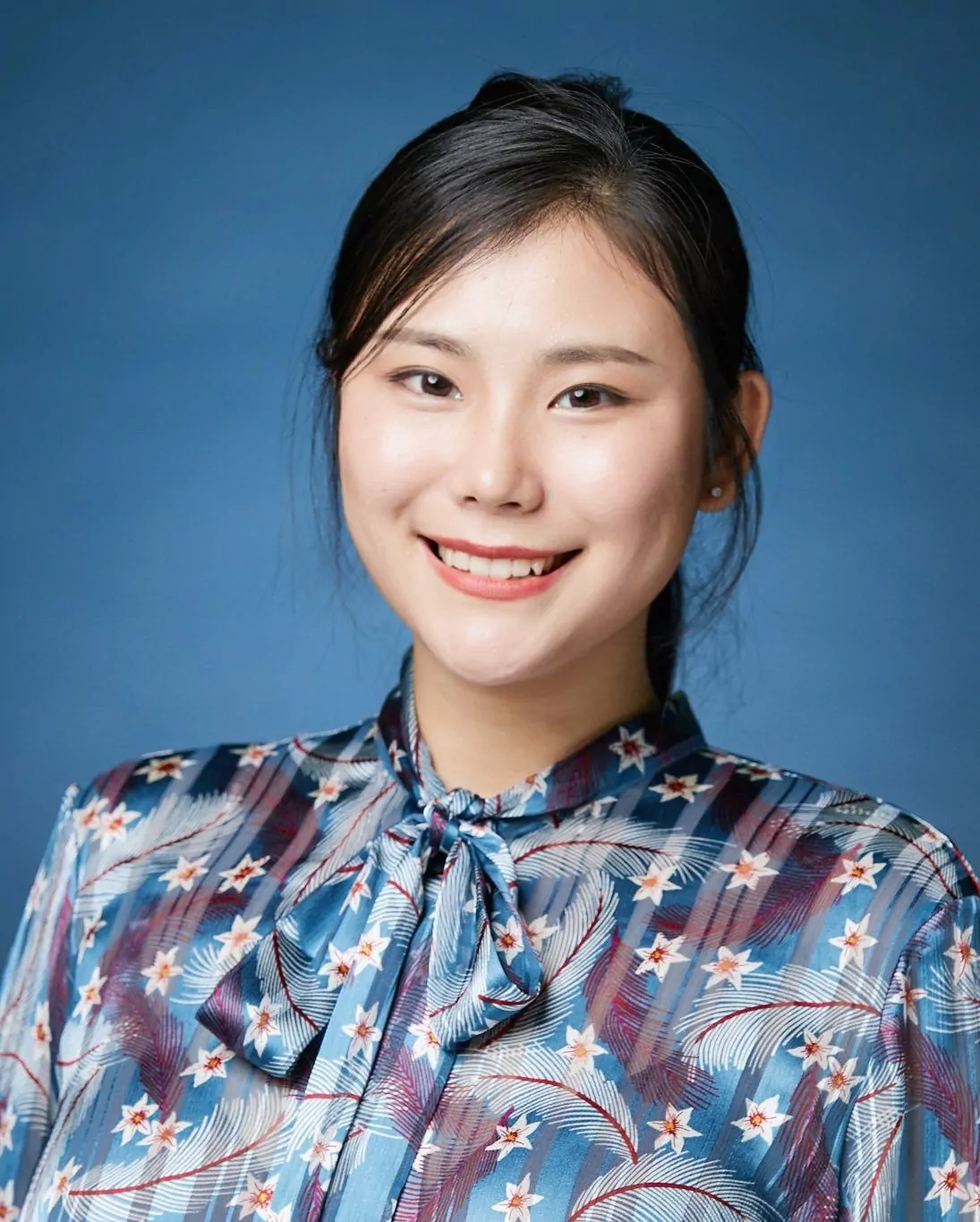
Ming Gao joined Waters Corporation in January 2021 as an Upward BioInformatics Ideation Post-Doctoral Fellow. Ming earned a B.S. in Chemistry from Nanjing University in Nanjing, Jiangsu, China; and both an M.S. in Physical Chemistry and a Ph.D. in Chemical Engineering from University of Florida. Her doctoral research was focused on electrochemical engineering – specifically, mathematical modeling for electrochemical impedance spectroscopy of electrochemical biosensors.
While her role is based at our Immerse Cambridge innovation and research lab, Ming has yet to work in the building due to the COVID-19 global pandemic. This is somewhat ironic, as her work focuses on using glycoproteomics bioinformatics to further research on influenza viruses, including SARS-CoV-2.
During our conversations, we discussed Ming’s role and work at Waters Corporation, as well as her experience as a woman in chemistry and chemical engineering.
Q&A with Ming Gao, Ph.D.
- Thank you for taking the time to meet with me to discuss your research with glycoproteins at Immerse Cambridge, and how this work will enable advancements in the fight against COVID-19. Let us begin with you – please share a little about how you came to Waters.
Thank you so much for meeting with me! It’s my great pleasure to share my experience with you.
When I first learned of the opportunity at Waters, I was a little bit surprised because it was outside my area of studies. However, after speaking with Allen Caswell (Waters Senior Director, Informatics Research) and others at Waters, I felt that I could make a positive impact. This was at the height of the COVID-19 pandemic. The opportunity to aid in the fight against SARS-CoV-2 was both exciting and meaningful.
Beyond the chance to help enable COVID-19 research, I was drawn to this role by my discussions with the people at Waters. After speaking with team members, I recognized the immense opportunity to learn and grow. During the interview process, I was impressed by something that Scott Geromanos shared: “I’m fortunate enough to learn from people who are very generous with their knowledge, and now it’s time for me to generously share my knowledge with others.” I decided those are the people I would like to work with – they made me believe with my capability of learning, skills, and scientific research background, I could contribute to the research subject, the organization, and to society.
I am an Upward BioInformatics Ideation Post-Doctoral Fellow at Waters. In this role, I support the Global Research Informatics team and work on a collaborative project with Boston University. The goal of this project is to bridge the Universal Workflow with BU GlycResoft to further develop the bioinformatics software for analysis of multi-dimensional LC-MS data (including Cyclic IMS) related to glycoproteomics study. Our project will facilitate the qualitative and quantitative understanding of influenza viruses, including SARS-CoV-2 coronavirus.
This work is very exciting because of its multidisciplinary nature – it is at the intersection of software development, LC-MS technology, and biochemistry. I have the chance to work with a convergent team of excellent chemists, biochemists, glycoscientists, informaticians, data scientists, and engineers.
As COVID-19 vaccines become more available in the United States, I look forward to working in the Immerse Cambridge innovation and research lab – and to collaborating with and learning from these experts.

- How does Immerse Cambridge differ from other research laboratories? And, has the COVID-19 pandemic impacted your experience as a new Waters employee?
The Immerse Cambridge innovation and research lab, which is located in Kendall Square in Cambridge, Massachusetts, is surrounded by our customers, collaborators, and even our competitors. These are globally recognized organizations focused on advancements in biotechnology, science, and engineering. Here, Waters can partner with leaders in academia, research, and the industry to accelerate and co-create toward the next generation of scientific developments.
This location features not only a state-of-art laboratory outfitted with Waters latest and in-development system solutions and specialty instruments but also is well designed for collaboration. It’s different from a customer experience and demonstration laboratory … Rather, it is designed to foster partnership and the dissemination and expansion of ideas through training, joint research, and mentoring experiences for students and up-and-coming industry professionals.
Here, our scientists and engineers can bring their ideas and work-in-progress to discuss with collaborators and customers, seek suggestions, and foster improvement. Likewise, customers and others in academia and the industry can bring their challenges to discuss and ideate with Waters engineers and scientists. It’s a working, collaborative research lab for high-tech solutions.
Starting my first job amid the COVID-19 pandemic was challenging, exciting, and even a little bit strange – I met with most people for the first time virtually. However, Allen Caswell and everyone at Waters have been so supportive and friendly. They’ve made it easy for me to reach out for help and to work together as though we were in a single location. While the pandemic has kept us physically separated and away from Immerse Cambridge, we are no less productive or collaborative. Daily, I continue to actively communicate and work with team members virtually and look forward to meeting them all in person.
- How did you make the switch from physical chemistry to chemical engineering? How does this affect your perspective as you approach research?
Life is all about chances and choices.
For me, I had the fortunate chance to attend a seminar given by my doctoral advisor on his research on a clay-dewatering project. During this project, they developed gigantic electrodes to dewater clay and recover the land taken by phosphate mining in Tampa, Florida.
I was intrigued by the way that electrochemical engineering could help the environment and even human health. Also, I was impressed by the passion of my Ph.D. advisor about his research, his group, and his research philosophy. I was determined to join his group and learn from him – my advisor often joked that I recruited myself into the group.
My advisor was a great positive influence on my view of both research and life – he is always humble and patient with students. While it was not easy – I was a pure experimental chemist in physical chemistry – my advisor encouraged me to learn and to challenge myself.
I had to learn programming and modeling from the beginning, as well as Electrochemical Impedance Spectroscopy – which is a difficult subject with complicated math and a steep learning curve. However, I was focused and determined; and my efforts paid off. I developed my expertise in my research field and broadened my skillsets. This gave me the confidence to begin again in a new field and to continue learning.
At Waters, our group is professional and collaborative, and I find many opportunities to learn from others. This environment enabled me to develop as a mature, independent researcher, as well as a productive team player.
- In preparation for our conversation, I learned that chemical engineering was the second most popular degree among women in engineering (2017-2018) and more women are earning graduate degrees in STEM than ever before. However, much work remains to close the gender gap in academia and in the workplace. Likewise, in 2017-2018, only 29% of master’s degrees and 24% of doctoral degrees in engineering[1], and only 13% of engineers in the workforce are women.[2] Please share a little about your experience as a woman in science.
You are correct. This is not a heavily female-dominated field. However, throughout my education and during my time at Waters, I have felt supported and encouraged.
As a student, I was highly motivated to succeed and became active in a number of student organizations, including the Graduate Association of Chemical Engineers (GRACE), Society of Women Engineers (SWE), and Women in Chemical Engineering(WIC). In the Women Mentoring Group in Chemical Engineering at University of Florida, we discussed challenges facing women in academia and in the industry, as well as potential career paths. Some of the discussion topics included how to advocate for ourselves and how to build a personal brand. Participants also supported one another around academics, career choices, and opportunities, and even personal topics.
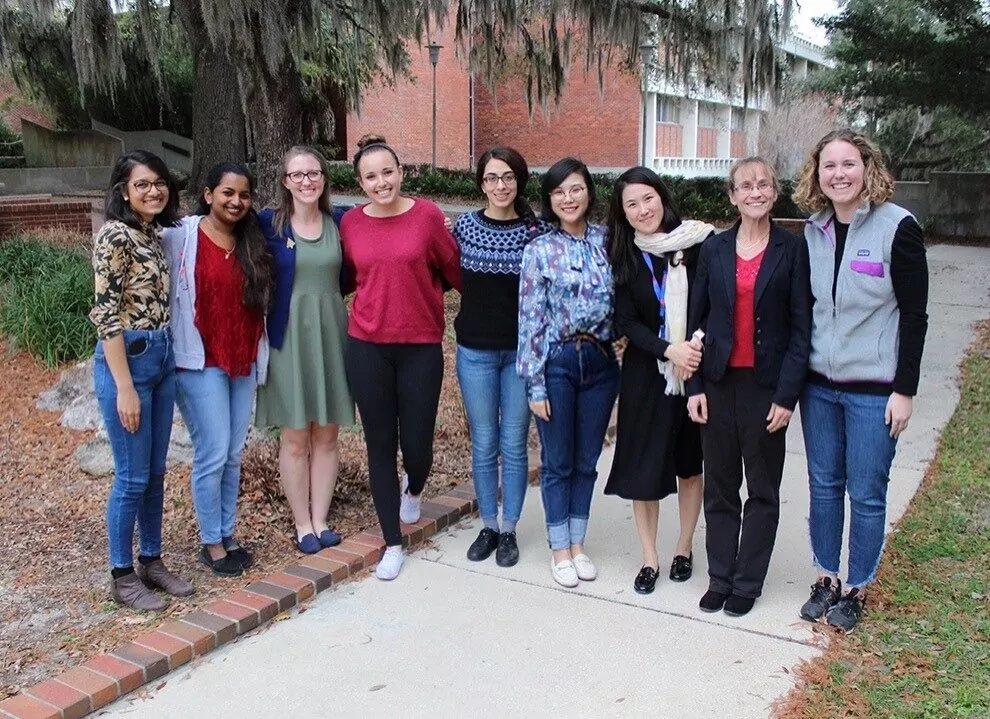
I also had the tremendous fortune to receive mentorship from a number of faculty during my studies.
-
- During my graduate studies at University of Florida, my doctoral advisor was also a father to a daughter. This gave him a different perspective than many, and he was an advocate for female students and faculty. I appreciated his support, and he had a big influence on my academic path and on my personal life.
- I was fortunate to be mentored by one of the few female faculty members. Her experiences in chemistry have helped shape my academic journey.
- When I transferred to chemical engineering, a new female assistant professor encouraged me to attend a Women in Chemical Engineering event. She was active in the organization and attended these events with me. She regularly coordinated meetings among the women in the program and was supportive in preparing me for my future.
Each of these experiences has shaped me as a researcher and as an individual, and I am grateful for their perspective and mentorship.
- As someone relatively new to the field, this must be exciting research.
Yes, the work is challenging and exciting; and I am eager to learn as much as possible. I recognize the significance of this work amidst the pandemic, as well as its potential impact on other viruses as well. Waters has enabled me to learn quickly and to be a part of a truly collaborative environment.
Right now, I am learning so much about liquid chromatography, mass spectrometry, and different areas of software engineering tools. I’m also benefiting from the biochemical perspective of the experts at Waters. All of this will expand my skill set and will enable me to be more competitive in a multi-disciplinary field.
I love the bioinformatics work and really enjoy programming. I would like to expand my knowledge around data science – and how it can inform new scientific breakthroughs and advancements in glycoproteomics. As a pioneer in the specialty instrument field, Waters is positioned to be able to generate the tools needed to enable the further study of glycosylation, which will help influence the study of viruses – today and into the future.
I look forward to the opportunity to make individual contributions to the field of bioinformatics and glycoproteomics.
Learn more about Waters Immerse Cambridge innovation and research lab
[1] Society of Women Engineers. Research and Trends for Women in STEM: Higher Education, Degree Attainment. 2017-2018. https://research.swe.org/2016/08/degree-attainment/
[2] Society of Women Engineers. SWE Research Flyer. Updated, 2018. https://alltogether.swe.org/wp-content/uploads/2018/09/SWE-Research-Flyer-8_15_18-1.pdf
Popular Topics
ACQUITY QDa (16) bioanalysis (11) biologics (14) biopharma (26) biopharmaceutical (36) biosimilars (11) biotherapeutics (16) case study (16) chromatography (14) data integrity (21) food analysis (12) HPLC (15) LC-MS (21) liquid chromatography (LC) (19) mass detection (15) mass spectrometry (MS) (54) method development (13) STEM (12)

